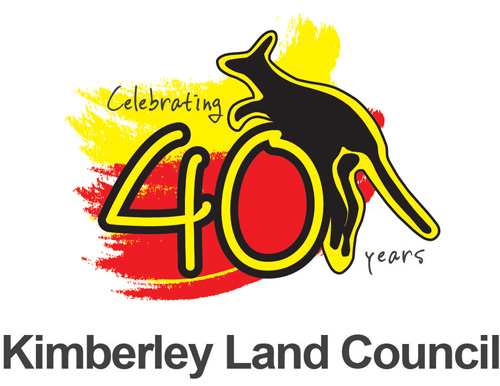For many years, Indigenous women rangers have used their ecological knowledge to protect Australia’s unique plant species.
“Women rangers manage woman-only cultural sites, mentor female students from school. Women’s rangers are better at identifying bush tucker and bush medicine, we learn from old ladies” – Helma Bernard, Gurindji Ranger.
Read the story of how these women are using their traditional knowledge to literally grow plants into successful bush product businesses.
***
The Bardi Jawi Oorany, Nyul Nyul and Karajarri women rangers in the Kimberley are using their ecological knowledge of plants to protect and propagate native plant species. They are also working with their communities to share this knowledge and highlight the benefits of their meaningful work on country.
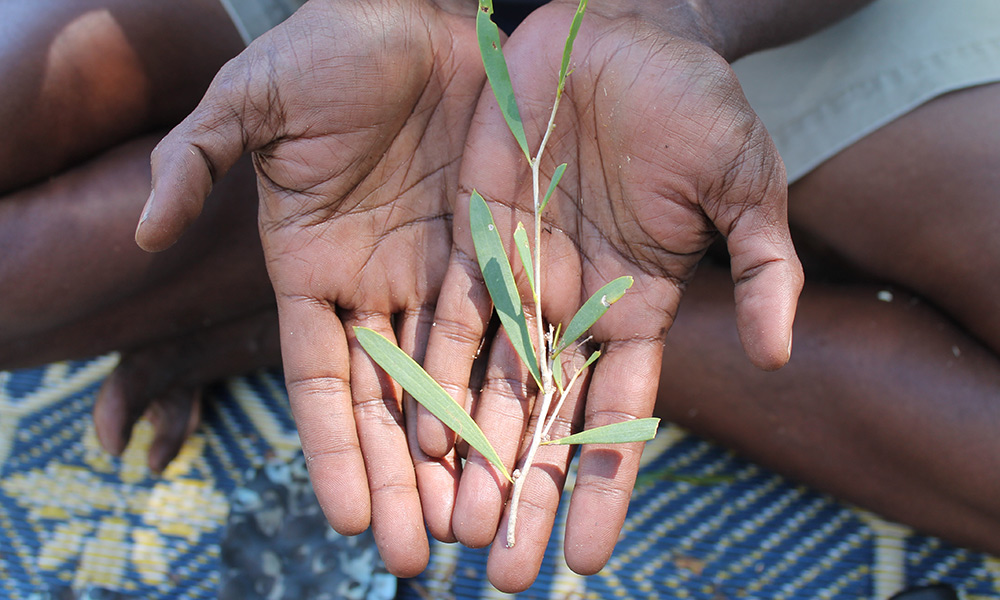
Native plants are grown and nurtured by Kimberley women rangers. They have invaluable knowledge about the medicinal, ecological, spiritual and ornamental uses of these plants.
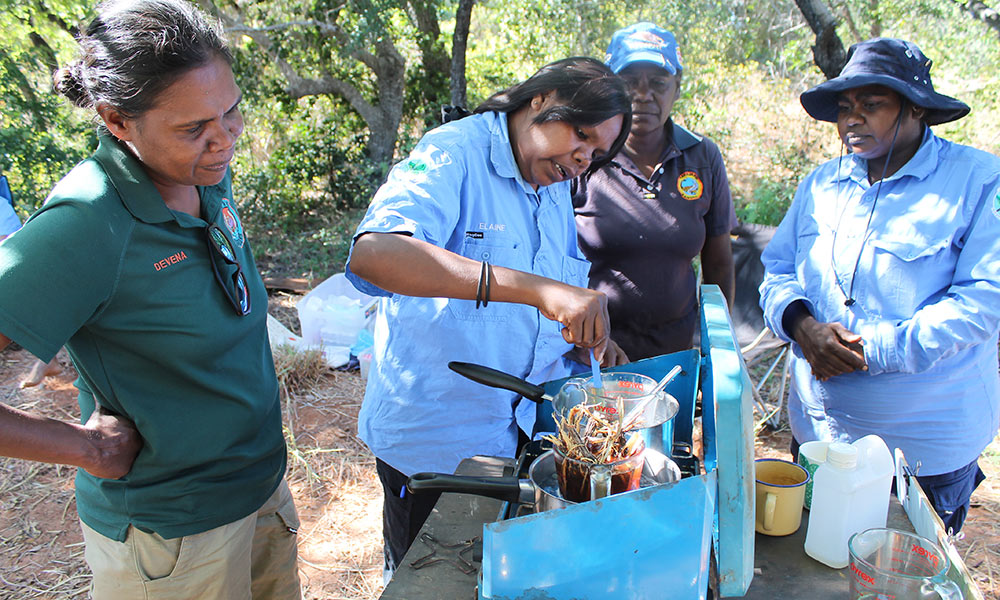
The Kimberley Land Council hosts four women ranger teams who are in the early stages of developing social enterprises based on traditional bush products.
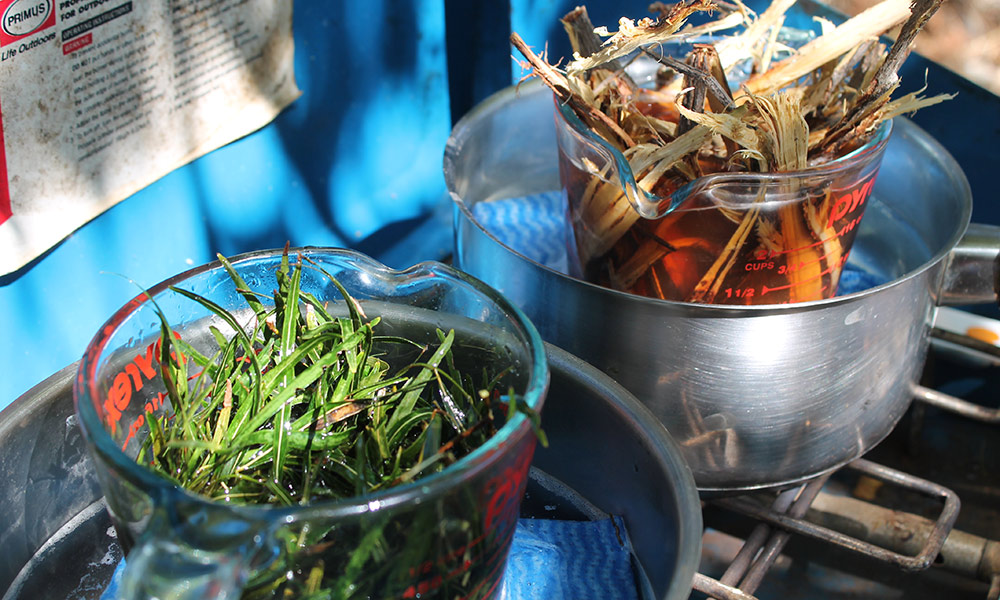
The women have been experimenting with different plants and products, combining traditional knowledge with contemporary techniques, and have staged local workshops that are bringing together elders and expert consultants.
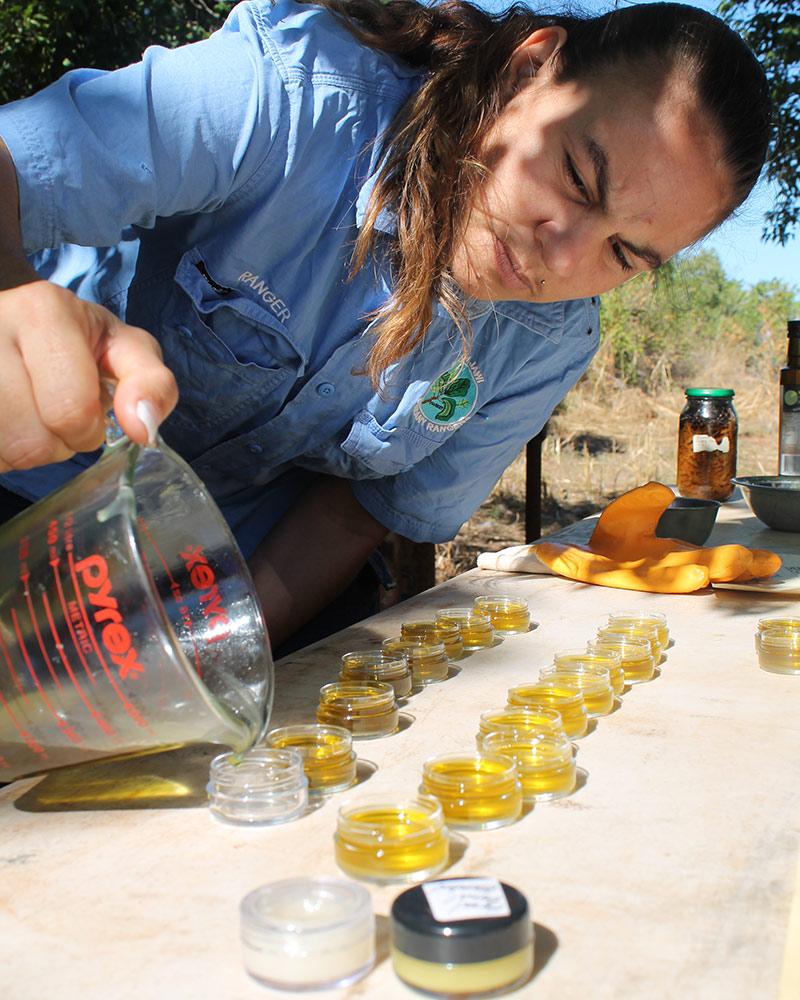
The rangers have already identified local markets within their own communities, such as tourism operators, cafes, market stalls, galleries and health services. However, in the long-term they may look into developing higher end products to sell to national and international supply chains.
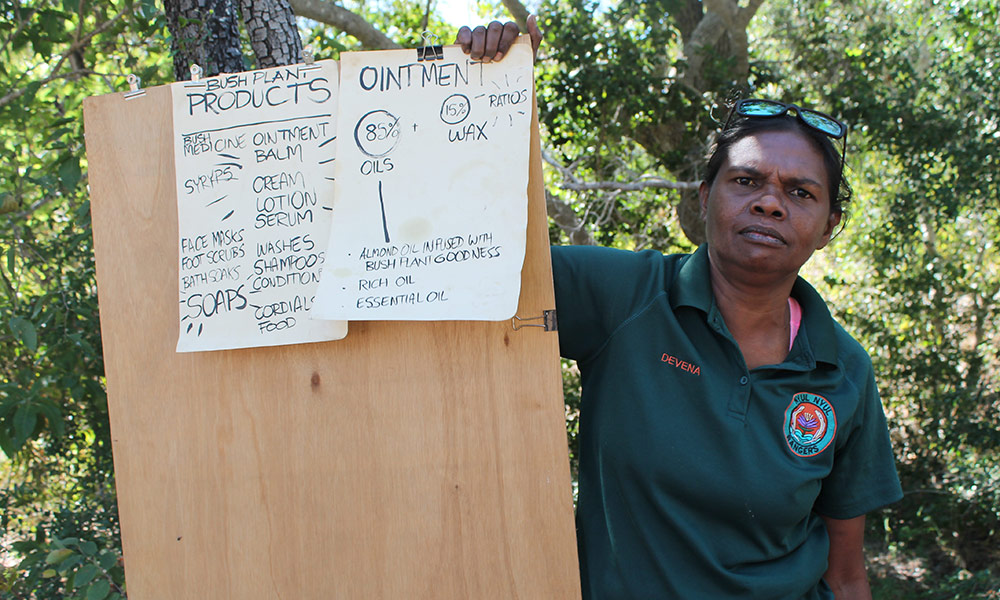
With the help of senior women cultural advisers, the Bardi Jawi Oorany Rangers have also developed a plant story book that showcases traditional ecological knowledge.
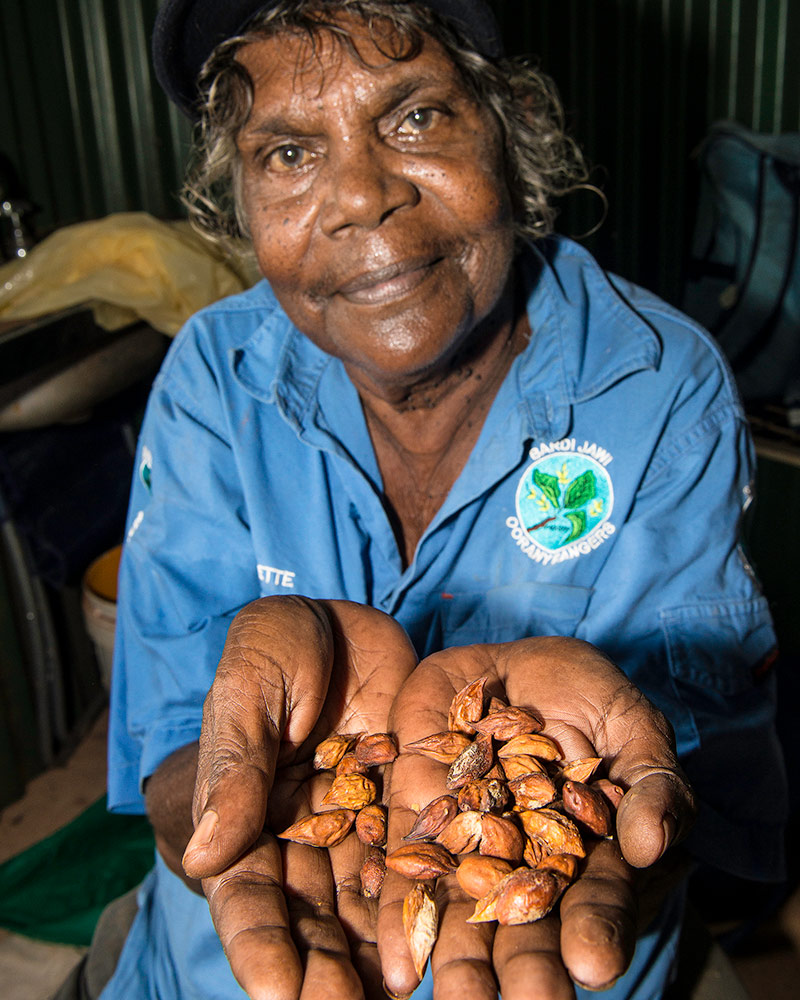
These strong women are at the first ever west Kimberley women rangers camp at Milagoon on the Dampier Peninsula. They shared their knowledge and ideas, and workshopped methods in developing bush products.
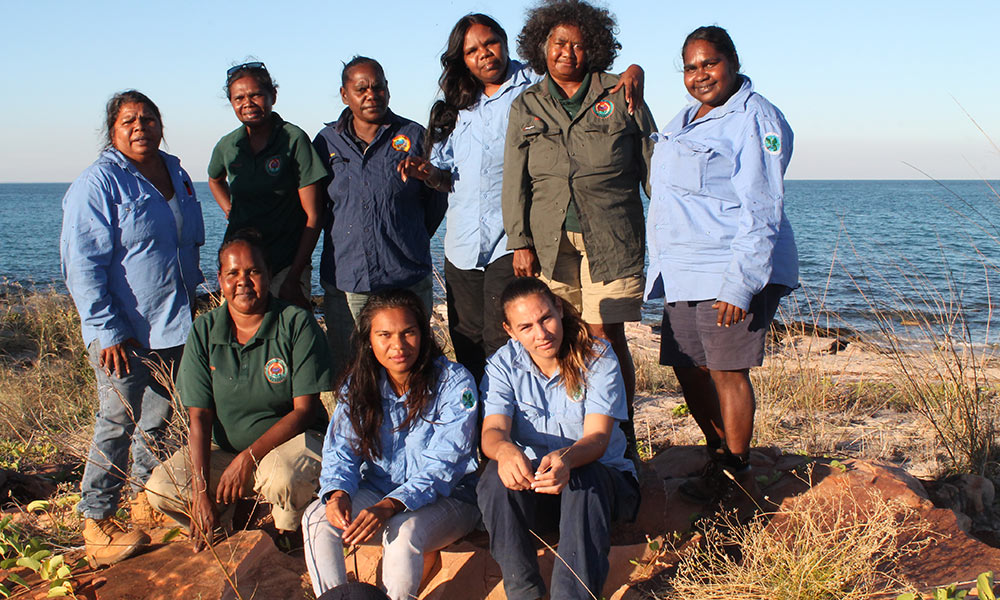
Back row: Coordinator Debbie Sibosado (BJO), Rangers Devena Cox (NN), Jacqueline Shovellor (KJ), Elaine Riley (BJO), Katie Kitchener (NN), Shirley Thomas (BJO)
Front row: Rangers Tamara Sebastien (NN), Tatjiana Bin Rashid (BJO) and Jonelle Ketchell (BJO)
***
The story of these women rangers of the Kimberley is just one example of what is being achieved by Indigenous women who are caring for country across Australia, and the importance of building a strong support network that can build the capacity of these women, promote job security and long-term outcomes. They face challenges and difficulties every day but as role models for the young females in their communities you couldn’t find better. Discover more about the inspiring work being carried out by Indigenous women rangers in the Country Needs People report - ‘Strong Women on Country’ and Kimberley Land Council's website.
With thanks to our partner Kimberley Land Council (KLC)
